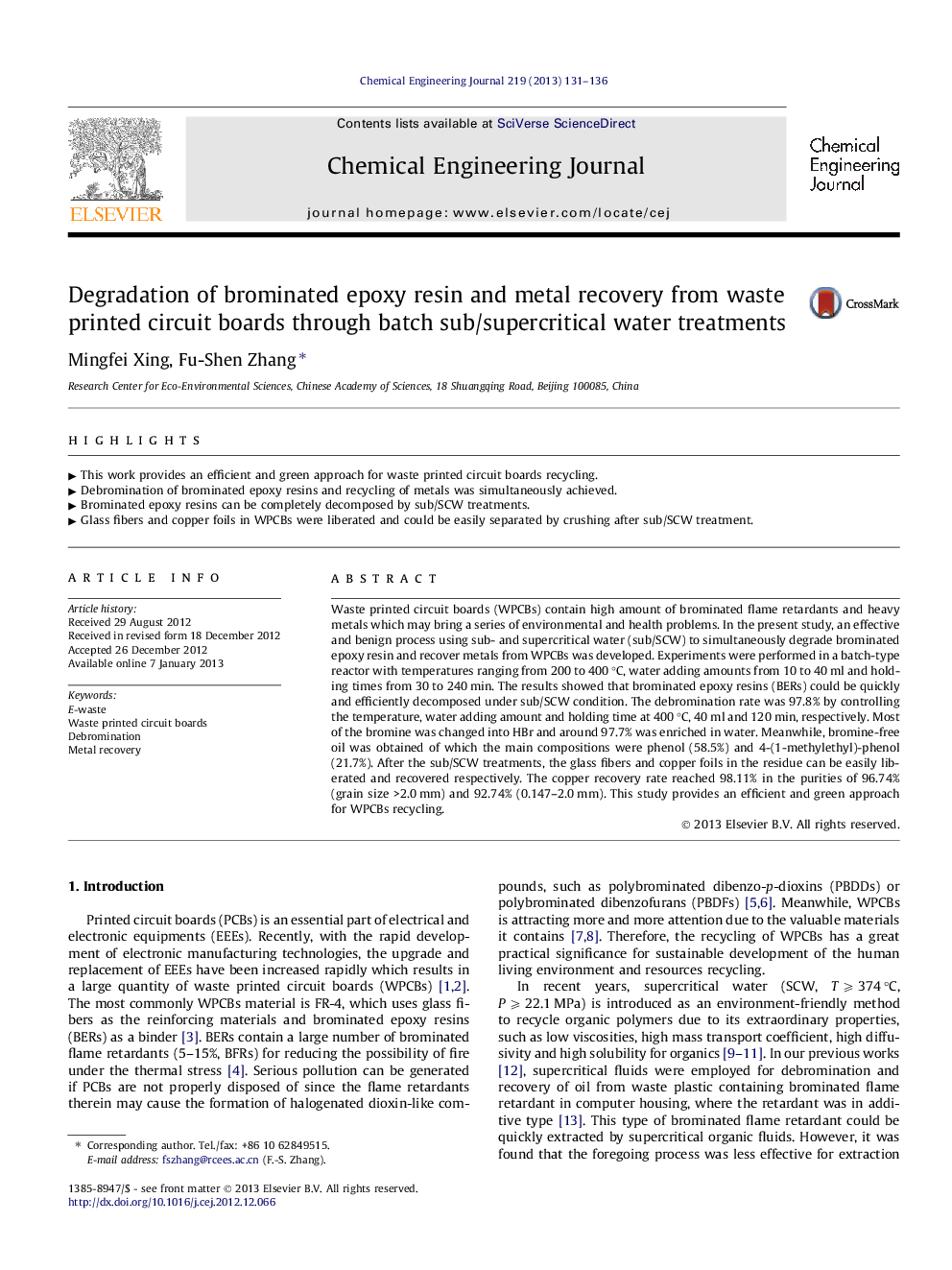| Article ID | Journal | Published Year | Pages | File Type |
|---|---|---|---|---|
| 148879 | Chemical Engineering Journal | 2013 | 6 Pages |
Waste printed circuit boards (WPCBs) contain high amount of brominated flame retardants and heavy metals which may bring a series of environmental and health problems. In the present study, an effective and benign process using sub- and supercritical water (sub/SCW) to simultaneously degrade brominated epoxy resin and recover metals from WPCBs was developed. Experiments were performed in a batch-type reactor with temperatures ranging from 200 to 400 °C, water adding amounts from 10 to 40 ml and holding times from 30 to 240 min. The results showed that brominated epoxy resins (BERs) could be quickly and efficiently decomposed under sub/SCW condition. The debromination rate was 97.8% by controlling the temperature, water adding amount and holding time at 400 °C, 40 ml and 120 min, respectively. Most of the bromine was changed into HBr and around 97.7% was enriched in water. Meanwhile, bromine-free oil was obtained of which the main compositions were phenol (58.5%) and 4-(1-methylethyl)-phenol (21.7%). After the sub/SCW treatments, the glass fibers and copper foils in the residue can be easily liberated and recovered respectively. The copper recovery rate reached 98.11% in the purities of 96.74% (grain size >2.0 mm) and 92.74% (0.147–2.0 mm). This study provides an efficient and green approach for WPCBs recycling.
► This work provides an efficient and green approach for waste printed circuit boards recycling. ► Debromination of brominated epoxy resins and recycling of metals was simultaneously achieved. ► Brominated epoxy resins can be completely decomposed by sub/SCW treatments. ► Glass fibers and copper foils in WPCBs were liberated and could be easily separated by crushing after sub/SCW treatment.
